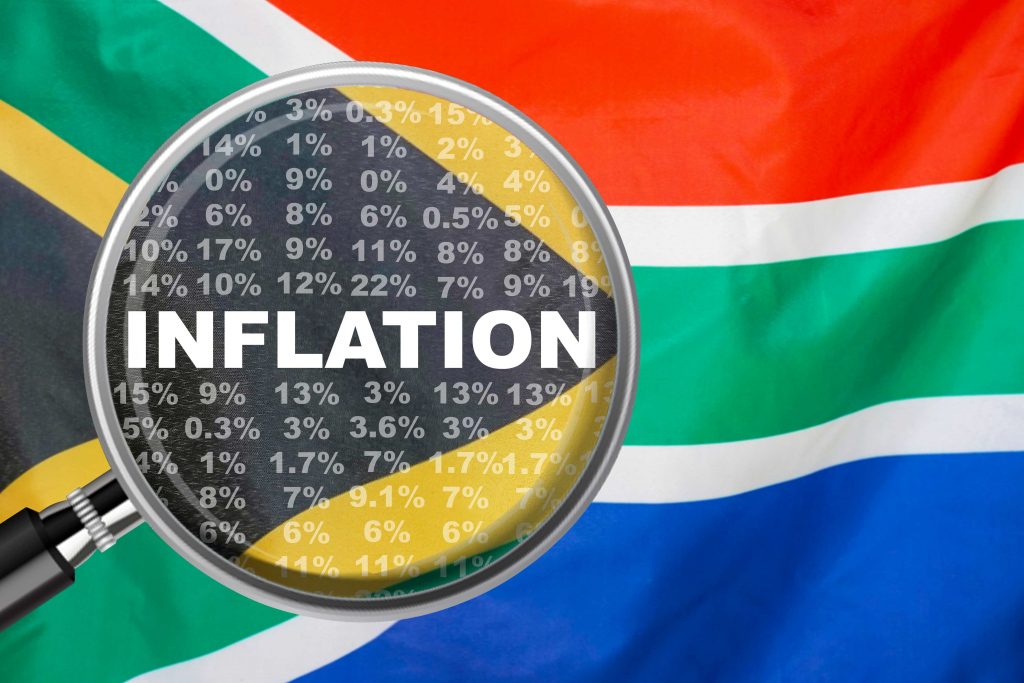In spite of declining inflation, the South African Reserve Bank (SARB) decided to keep its present loan rates. The Reserve Bank's move is a significant development for individuals, businesses, and investors who closely watch the country's fiscal situation. As inflationary pressures begin to lessen, the Reserve Bank's decision will affect South Africa's overall economy.
Overview
According to Statistics South Africa, there is some positive news as consumer inflation in South Africa decreased in July from 4.9% to 4.6% compared to the same month last year. However, most prices on other things such as meat, food, electricity, and petrol, still show potential for further increases.
This data point was significantly closer to the midpoint of the target range of the central bank which was between 3%-6% on annual inflation. This is subsequently parallel with what economists were expecting after a 30-month high of 5.2% in May. During a time when there were increasing concerns that global prices would rise.
The main contributors to this reading were food as well as non-alcoholic beverages, and transport, which saw increases of 6.7% and 8% respectively in comparison with last year. The Governor of the SARB, Lesetja Kganyago stated in July that he anticipates that S.A's economy would see pre-pandemic levels within the next two years.
Further analysis and what this means for SA
Consumer price growth saw increases of at least 1.1% per month, and annual inflation hit a 14-month high in April. There were riots, violence, and destruction plaguing two of the busiest provinces in South Africa in July.
This, combined with rising inflation elsewhere in the world along with steadily increasing oil prices, have resulted in bets of further rises in consumer prices on local soil.
Because of an existing weak economic environment, clothing inflation is only at 1.6% while food inflation has increased to 7%, electricity has risen to 13.6%, and petrol up to 15.2%, with expectations of sharp rises to 20% within the next month.
The Johannesburg Stock Exchange (JSE) reacted negatively to this news with the index retracting some solid gains during the week.
While the SA Reserve Bank now has the room to keep lending rates flat, inflationary pressure in South Africa continues to moderate downwards, which can be expected with base effects dissipating.
The Inflation Effects
These base effects have resulted in fuel price movements in addition to the imputations of pricing data which was not available during the hard lockdowns in 2020. This led to inflation, which we currently see; helping to assist the SA Reserve bank in keeping rates as low as possible and for longer.

The next meeting regarding lending rates will occur in mid-September, one month before the new Finance Minister, Enoch Godongwana is set to deliver his medium-term budget policy statement.
While the low lending rates have given some space for South Africa’s cash-strapped consumers who are consistently facing unemployment rates well above 30%.This has a huge impact on the rise in inequality and poverty. Moreover, some pressure will be on Godongwana as well as the National Treasury, but not much, and not for very long. According to economists, the current outlook is that the monetary environment in South Africa is set to prohibit any sharp balance with acceleration in price growth.
Read More: Virgin Galactic a buy or are we staring into space
Reserve Bank Accommodative Policy
This is assuming that the Reserve Bank gets enough leeway to continue its accommodative policy for a little longer than its rivals. Moreover, it is assuming that the safety of the financial markets and the South African rand can continue.
South Africa is currently still fighting the third wave of the Covid-19 pandemic, with the phased approach towards vaccinating the population moving very slowly. Of 56 million South Africans, more than 7.7 million have received the first dose of Pfizer, with more than 100,000 fully vaccinated, representing only 1.6% of the population.
While efforts are slow to attempt to reach “herd immunity” to protect residents against a looming fourth wave, South African businesses are struggling to get ahead of the tide of possible lockdowns that may follow if South Africa experiences another wave, slowing economic growth and the future outlook even further.
Final Thoughts On The Reserve Bank
As a result, the SARB's choice to maintain stable loan rates in the face of lowering inflation is a significant development with ramifications for stakeholders. While debtors and companies may applaud the decision, it also represents the Reserve Bank's cautious stance in light of the uncertain economic prognosis.
Overall, it appears that the Reserve Bank's decision will lessen some of the burdens faced by debtors while maintaining a stable and reliable environment for monetary policy in South Africa. As the economy proceeds to recover from the effect of the pandemic, it will be essential to watch the Reserve Bank's policy choices and their influence on various sectors of the economy. Follow our blog to stay updated.
